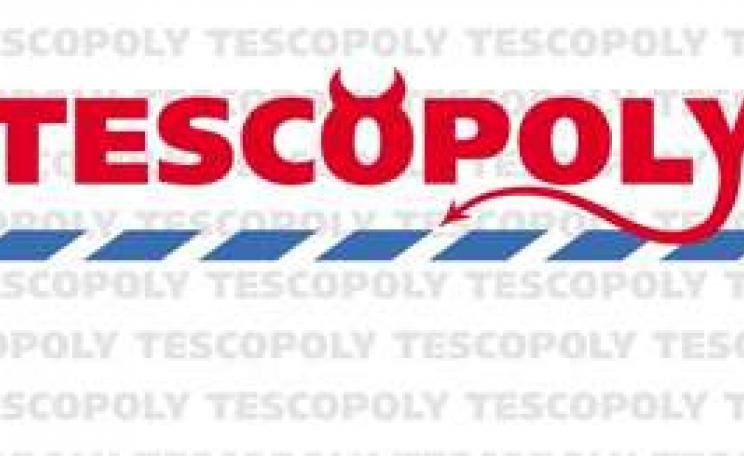It’s a big week for fashion in London, with models gracing the catwalks of fashion week and Europe’s biggest urban shopping centre opening its doors in East London. With attention firmly fixed on top designers and high street brands, few stop to think about the supply chains behind the goods they covet.
But a report released in May 2011 by the Dutch corporate investigators SOMO highlights the plight of female labourers in India who produce, according to the organisation, garments for major retailers such as Tesco, H&M and NEXT.
The report documents how in the widespread and exploitative practise known as a 'Sumangali' scheme, young females ages 14 to 21 are recruited to work for three year periods. They are offered accommodation, wages, and a lump-sum payment upon the completion of their contract (40,000 rupees = £555). Such a deal is known to appeal to young females seeking a dowry payment.
The reality of what these young girls agree to, according to SOMO, is known as a bonded labour scheme, where ‘employers hold back part of the workers’ wages and only pay them out after the three years have been completed’.
In the meantime, some workers are forced to work overtime, offered no social benefits, and live with a complete lack of freedom and privacy. The report identified one young girl who quit after two and a half years of working under the scheme, and received none of the promised payment.
Martje Theuws, who co-authored the report, says that prior to its publication, there were promising signs that retailers were keen to address these problems. A number of major brands issued a statement recognising that they ‘have an important role to play in condemning [these] practices and supporting efforts to eliminate labour rights abuses’.
‘Although the statement lacked any proposals for concrete action, SOMO and India Committee of the Netherlands welcomed the positive intentions that were expressed by means of this statement’, Theuws said.
Since then, the Ethical Trading Initiative (ETI), which works with NGOs, trade unions, and retailers including Tesco, H&M, and NEXT, has been facilitating talks to concretise a three-year plan of action. However, four months later, no report or official documentation of these efforts has been published.
Julia Kilbourne, apparel and textiles category leader for ETI, says that the lack of an official plan of action doesn’t necessarily mean no progress has been made. The reality, Kilbourne says, is that addressing the supply-chain issues is a 'collaborative and delicate process', not limited to just the retailers.
‘When you get to the source of where these labour rights concerns are occurring you really have to see what’s happening within the country first and then support those efforts’, Kilbourne said. ‘You can’t really effect change through these top down audit processes.’
The retailers contacted by the Ecologist deferred to ETI on this matter.
However, brands that source from suppliers using the Sumangali scheme are not limited to those named in the SOMO report.
‘All companies sourcing from India are likely to indirectly source from spinning units using this exploitative scheme,’ the report states.
Some consumers may feel that the boldest way for retailers to show their opposition to these unfair labour practises would be to stop doing businesses with the suppliers in question, a so-called ‘cut and run’. However, both the SOMO report and ETI agree that is not the way forward.
Kilbourne says that even if an individual retailer wants to take a stand, they’re not likely to make progress doing it on their own.
'If [a company] does it alone and not in collaboration then they have very little power’, Kilbourne says. ‘Where we have the most leverage is when all the corporations come together and apply their purchasing power by asking the right kinds of questions to suppliers’.
| READ MORE... | |
 |
COMMENT Fashion special The fashion industry has the potential to be a real force for good Yes there have been scandals, and yes, there is more to do, but the fashion industry is working hard to become greener and more ethical. It’s time to start supporting these efforts, argues Green Living Editor Ruth Styles |
 |
COMMENT Fashion special Stop making China suffer toxic pollution for Western fashion A Greenpeace investigation exposed the gender-bending chemicals used in clothing production. Puma, Nike and Adidas have agreed to phase out the toxic chemicals, but can we expect others to follow? By Tamara Stark |
 |
GREEN LIVING Fashion special Safia Minney: fashion’s impact on the earth In an exclusive extract from her new book - Naked Fashion - the People Tree founder looks at the environmental damage caused by modern fashion – and sketches out a radical new way forward |
 |
REVIEW Fashion special Naked Fashion: The New Sustainable Fashion Revolution Showing fashion at its worst while providing upbeat solutions is a tough call but Safia Minney has achieved it with Naked Fashion, says Ruth Styles |
 |
HOW TO MAKE A DIFFERENCE Fashion special Inside the London College of Fashion's eco-hub Fashionable ideas get an ethical makeover at the Centre for Sustainable Fashion. Matilda Lee reports |








